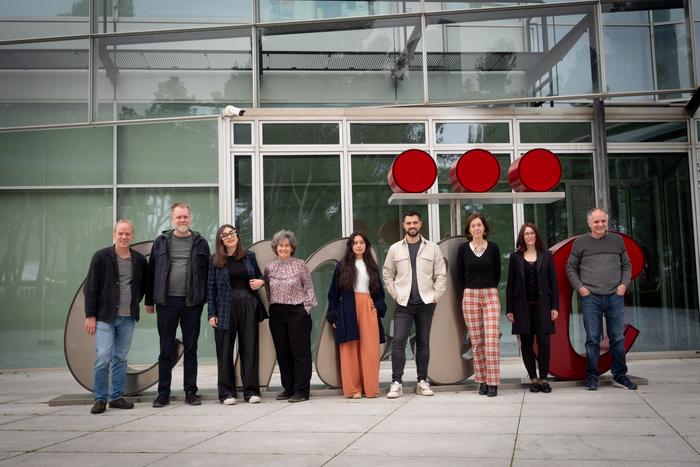A research team based at the Centro Nacional de Investigaciones Cardiovasculares (CNIC) in Madrid and Aarhus University in Denmark has identified an important mechanism that can result in the regression, or shrinkage, of atherosclerotic plaques. The study identifies cells derived from the smooth muscle cells in the arterial wall as a new target for future therapies.

Credit: CNIC
A research team based at the Centro Nacional de Investigaciones Cardiovasculares (CNIC) in Madrid and Aarhus University in Denmark has identified an important mechanism that can result in the regression, or shrinkage, of atherosclerotic plaques. The study identifies cells derived from the smooth muscle cells in the arterial wall as a new target for future therapies.
The identified mechanism, described in a paper published in Nature Cardiovascular Research, relies on a type of inflammatory signaling in a subset of smooth muscle cells involved in the growth of atherosclerotic plaques. According to Jacob F. Bentzon, head of the teams at the CNIC and Aarhus University, “the discovery of this mechanism opens up new opportunities to design targeted therapies to enhance the beneficial effect of cholesterol-lowering drugs and lead to more effective lesion regression in patients with advanced atherosclerosis”.
Smooth muscle cells are constituents of the arterial wall, and their proliferation and transformation into derived cell types during atherosclerosis contributes to cardiovascular and cerebrovascular disorders such as heart attack and stroke
Blood cholesterol is the main cause of atherosclerosis, and reducing its levels through a healthy lifestyle or specific medication such as statins provides an effective way to prevent the development of high-risk atherosclerosis.
In individuals who have already developed advanced atherosclerosis, lowering cholesterol levels also helps to reduce the risk of irreversible lesions that cause myocardial or cerebral infarctions. However, the mechanisms behind these effects have not been fully explained.
“Our research findings show that when cholesterol lowering is initiated in mice with advanced atherosclerosis, the smooth muscle-derived cells that cause plaques to grow becomes less numerous, while other types of smooth muscle-derived cells responsible for stabilizing plaques are preserved,” explained first author Laura Carramolino.
In the study published in Nature Cardiovascular Research, the CNIC and Aarhus University researchers show that specific cell subtypes derived from smooth muscle cells disappear from plaques after cholesterol depletion, causing atherosclerotic plaques to shrink. The team also identified part of the mechanism that underlies these beneficial effects.
Laura Carramolino emphasized that the study was possible thanks not only to “new techniques that allow a more detailed analysis of the behavior of smooth muscle-derived cells in atherosclerosis, but also to formidable teamwork with the CNIC Technical Units”.
The CNIC specializes in experimental mouse models, advanced microscopy, genomic analysis, and bioinformatics, Carramolino added.
About the CNIC
The CNIC is an affiliate center of the Carlos III Health Institute (ISCIII), an executive agency of the Spanish Ministry of Science, Innovation, and Universities. Directed by Dr. Valentín Fuster, the CNIC is dedicated to cardiovascular research and the translation of the knowledge gained into real benefits for patients. The CNIC has been recognized by the Spanish government as a Severo Ochoa center of excellence (award CEX2020-001041-S, funded by MICIN/AEI/10.13039/501100011033). The center is financed through a pioneering public-private partnership between the government (through the ISCIII) and the Pro-CNIC Foundation, which brings together 12 of the most important Spanish private companies.
Journal
Nature Cardiovascular Research
DOI
10.1038/s44161-023-00412-w
Method of Research
Experimental study
Subject of Research
People
Article Title
Cholesterol lowering depletes atherosclerotic lesions of smooth muscle cell-derived fibromyocytes and chondromyocytes
Article Publication Date
19-Jan-2024





